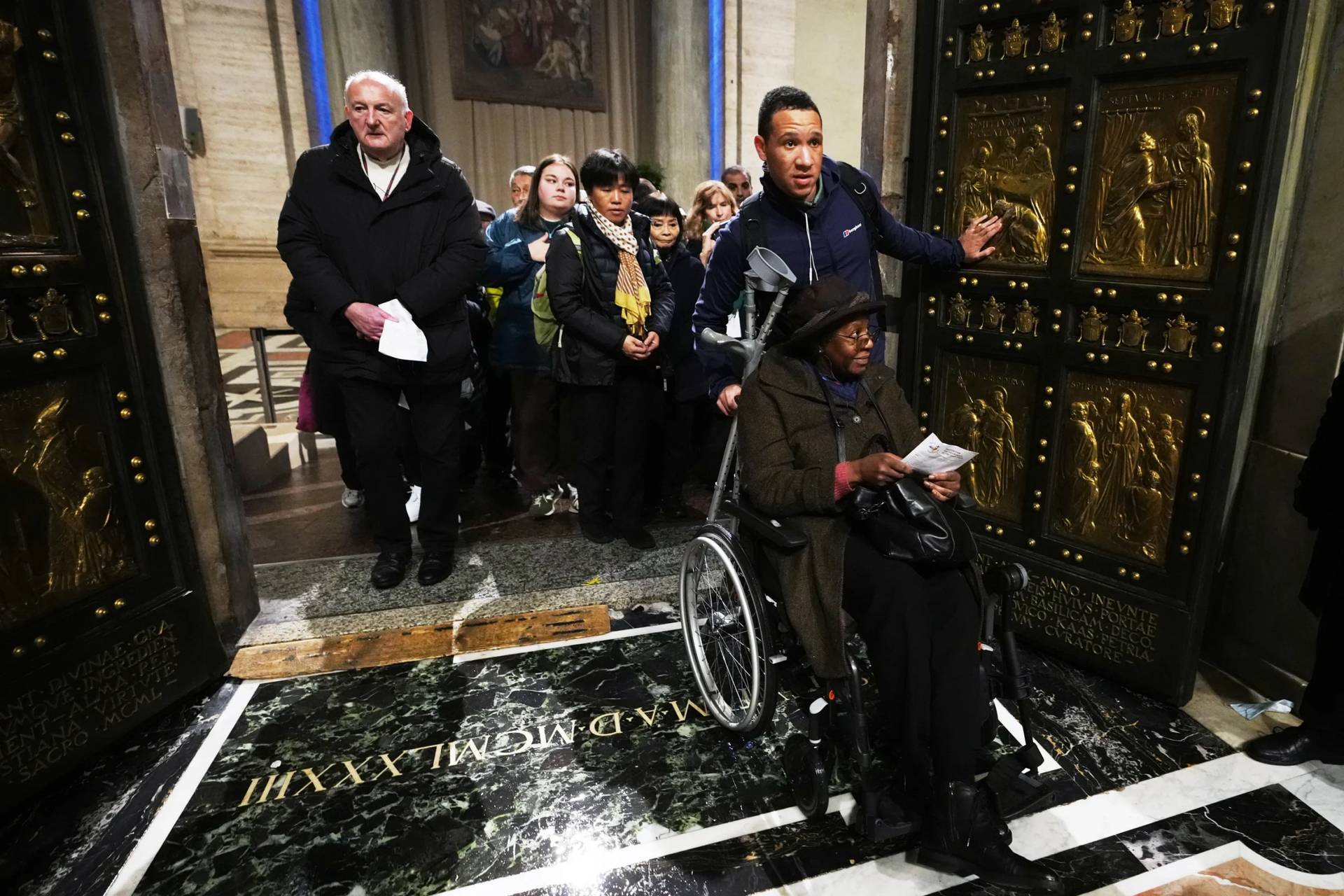ROME — Everyone, but especially consecrated men and women, Pope Francis said Thursday, are called to be a bringer of change in the world by bringing Christ to the people – even when it seems like the work goes unnoticed, or there is another who would do a better job.
“The Lord has called us to be leaven here and now, with the challenges we face. Not on the defensive or motivated by fear, but with our hands on the plough, helping the wheat to grow, even though it has frequently been sown among weeds,” he taught during his homily at a February 2 Mass in St. Peter’s Basilica.
The Mass celebrated the feast of the Presentation of the Lord and marked the 21st World Day of Consecrated Life.
Pope Francis said the calling of consecrated women and men is to put Christ “in the midst of people,” not acting as some sort of religious activist, but as “men and women who are constantly forgiven, men and women anointed in baptism and sent to share that anointing and the consolation of God with everyone.”
Addressing the potential doubts and fears people may have, Francis said “all are aware of the multicultural transformation we are experiencing; no one doubts this.”
But “it is all the more important for consecrated men and women to be one with Jesus, in their lives and in the midst of these great changes. Our mission – in accordance with each particular charism – reminds us that we are called to be a leaven in this dough,” he said.
“Putting Jesus in the midst of his people means having a contemplative heart, one capable of discerning how God is walking through the streets of our cities, our towns and our neighborhoods.
“Putting Jesus in the midst of his people,” he continued, “means taking up and carrying the crosses of our brothers and sisters. It means wanting to touch the wounds of Jesus in the wounds of a world in pain, which longs and cries out for healing.”
Referring to the day’s Gospel reading about Mary and Joseph’s presentation of Christ in the temple, he said that the words of Simeon and Anna were not full of self-absorption or an analysis of their personal situations.
Instead, their “song” was “born of hope, the hope that sustained them in their old age. That hope was rewarded when they encountered Jesus.”
Just as Mary placed Christ before Simeon and Anna to hold and to see, consecrated women and men are called to bring Christ to the people and areas they serve.
Sometimes, Pope Francis said, we can fall prey to a temptation of “survival,” a mentality that can take root within people and within communities which turns them into “reactionaries, fearful, slowly and silently shutting ourselves up in our houses and in our own preconceived notions.”
It makes us look back, “to the glory days – days that are past,” instead of working to rekindle the dreams and creativity present in our founders. A “survival mentality robs our charisms of power” by trying to make them more safe and more palatable to the modern world, he explained.
Moreover, the pope said “the temptation of survival makes us forget grace” by turning us “into professionals of the sacred but not fathers and mothers, brothers and sisters of that hope to which we are called to bear prophetic witness.”
This attitude is not limited to the consecrated life, he said, but “we in particular are urged not to fall into it.”
Referring to the Introduction to the Entrance Procession in the Roman Missal, the pope said that today’s liturgy tells us that when Christ was presented in the temple, that rite, forty days after his birth, “outwardly was fulfilling the Law, but in reality he was coming to meet his believing people.”
“This encounter of God with his people brings joy and renews hope,” he said. “Whenever Mary puts Jesus in the midst of his people, they encounter joy.
“For this alone will bring back our joy and hope, this alone will save us from living in a survival mentality. Only this will make our lives fruitful and keep our hearts alive: putting Jesus where he belongs, in the midst of his people.”
This “hymn of hope” sung by Simeon and Anna is something we have inherited, we are “part of this process,” Francis said. In the founders of the different orders, “In their faces, in their lives, in their daily sacrifice we were able to see how this praise was embodied,” he explained.
“We are heirs to those who have gone before us and had the courage to dream. Like them, we too want to sing, ‘God does not deceive; hope in him does not disappoint.’ God comes to meet his people.”













